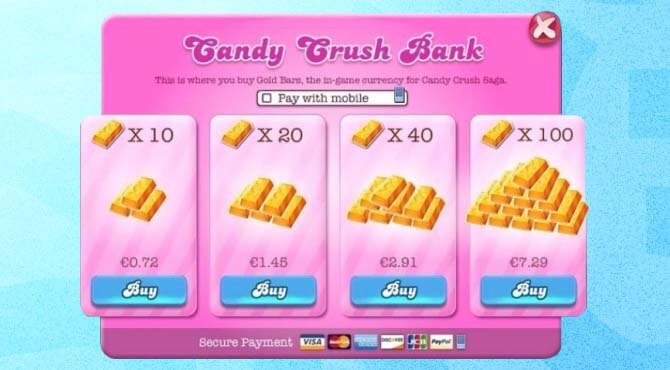The Hookup Doctor's Guide
Navigating the world of modern dating and relationships.
Rolling the Dice: Microtransactions in Gambling and Their Surprising Impact
Discover how microtransactions are reshaping the gambling landscape and what it means for players—prepare for surprising insights!
Understanding Microtransactions in Online Gambling: A Comprehensive Guide
Microtransactions have become a pivotal aspect of the online gambling industry, allowing players to enhance their gaming experience through small, in-game purchases. These transactions can range from buying virtual currency, unlocking special features, to acquiring in-game items that can improve a player's chances of winning. Understanding the mechanics and implications of microtransactions is essential for both players and developers, as it shapes the way online gambling platforms operate. The convenience of depositing small amounts of money for immediate gratification can lead to a more engaging experience, but it also raises questions about responsible gambling practices.
One of the significant advantages of microtransactions is the flexibility they offer, allowing players to customize their gambling experiences without the need for large upfront investments. However, it is crucial to strike a balance between enjoyment and overspending. Many online gambling websites provide clear guidelines on the nature and frequency of these transactions, fostering a safer gaming environment. As a player, it's essential to set a budget and adhere to it while remaining aware of the potential pitfalls associated with frequent in-game purchases, ensuring that the thrill of gambling remains a fun and controlled experience.

Counter-Strike is a popular first-person shooter game that has become a staple in the esports community. Players often compete in teams, utilizing strategy and skill to complete objectives and eliminate opponents. For those looking to enhance their gaming experience, you might want to check out our rollbit promo code for some exciting bonuses.
The Psychology Behind Microtransactions: Why Gamblers Keep Spending
Microtransactions have become a staple in the gaming industry, and their psychological impact is profound. One of the key reasons gamblers keep spending is the concept of loss aversion. According to behavioral economics, individuals prefer to avoid losses rather than acquiring equivalent gains. This phenomenon encourages players to spend more in hopes of recovering what they've lost, creating a cycle of continuous spending. Additionally, the thrill of in-game rewards drives users to invest more, as these microtransactions are often framed as opportunities to enhance gameplay and achieve greater satisfaction.
Moreover, the use of reward systems in games plays a critical role in sustaining this behavior. Gamers experience dopamine releases when they unlock new content or receive rewards, reinforcing their desire to continue spending. Social influences also contribute, as players may compare their progress and achievements with others, leading them to spend more to keep up or gain a competitive edge. Understanding these psychological factors can provide insights into why microtransactions remain so prevalent and effective within the gambling framework of modern gaming.
Are Microtransactions Changing the Future of Gambling?
As the digital landscape continues to evolve, microtransactions are increasingly reshaping the gambling industry. Traditionally dominated by large bets and high-stakes games, the introduction of microtransactions allows players to engage with games on a smaller scale. This shift has been particularly evident in online casinos and mobile gaming platforms, where users can make small purchases to enhance their gaming experience. The accessibility that microtransactions provide is changing who participates in gambling, attracting a younger audience that prefers low commitment and instant gratification.
Moreover, the impact of microtransactions on the future of gambling extends beyond simple purchases. Companies are finding innovative ways to integrate these transactions into their business models, often using them to promote in-game advantages or exclusive content. Microtransactions can also serve to retain users by creating a sense of ongoing investment in the game. However, this raises concerns regarding responsible gambling, as players may unknowingly overspend in pursuit of enhancing their gaming experiences. Thus, while microtransactions are indeed changing the landscape of gambling, they also call for a critical examination of their long-term implications.